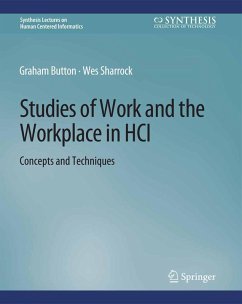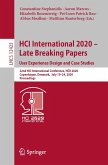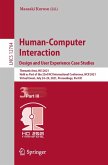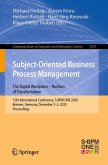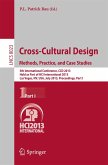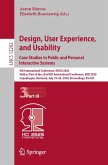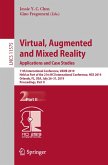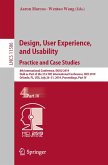This book has two purposes. First, to introduce the study of work and the workplace as a method for informing the design of computer systems to be used at work. We primarily focus on the predominant way in which the organization of work has been approached within the field of human-computer interaction (HCI), which is from the perspective of ethnomethodology. We locate studies of work in HCI within its intellectual antecedents, and describe paradigmatic examples and case studies. Second, we hope to provide those who are intending to conduct the type of fieldwork that studies of work and the workplace draw off with suggestions as to how they can go about their own work of developing observations about the settings they encounter. These suggestions take the form of a set of maxims that we have found useful while conducting the studies we have been involved in. We draw from our own fieldwork notes in order to illustrate these maxims. In addition we also offer some homilies about how to make observations; again, these are ones we have found useful in our own work. Table of Contents: Motivation / Overview: A Paradigmatic Case / Scientific Foundations / Detailed Description / Case Study / How to Conduct Ethnomethodological Studies of Work / Making Observations / Current Status
Dieser Download kann aus rechtlichen Gründen nur mit Rechnungsadresse in A, B, BG, CY, CZ, D, DK, EW, E, FIN, F, GR, HR, H, IRL, I, LT, L, LR, M, NL, PL, P, R, S, SLO, SK ausgeliefert werden.

